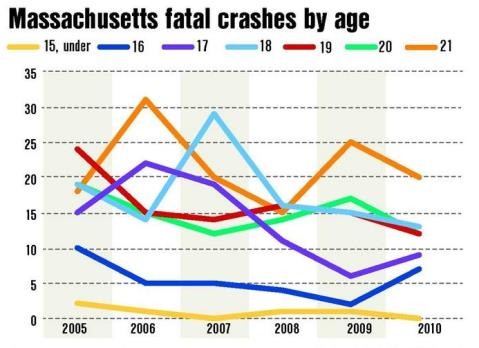This is an interesting story in the Hindustan Times about lane discipline.
One of my biggest headaches as a driving instructor is that some pupils have real problems with lane discipline. Indeed, in the course of any normal day, my own observations confirm that a huge number of supposedly competent drivers have the same problems, too.
Only the other day I had a pupil fail her test for crossing into the path of another car on a roundabout (drifting into the right hand lane). It was on what is known as the Virgin Roundabout and it’s on several of the Colwick test routes. In the debrief the examiner told her that she’d done it both going out and coming back, and on the second occasion there was a car just behind her who had to brake. She only got three faults in total.
This particular pupil is from India, and she has a full licence from there. She has done a lot of driving in her home city.
Among her “habits” that I’d had to address – apart from a total lack of awareness of road markings in some situations – was the knee-jerk reaction to literally anything she could see moving as we approached minor roads or from the left on roundabouts. When I first started teaching her, she’d happily stop dead in the middle of a roundabout if she saw anyone approaching on her left. She’d do the same if anyone approached a give way line at the end of a minor road as she was passing it. We’d addressed this, but in times of stress she could easily revert without thinking. That’s the trouble with bad habits – they can come back.
I’ve got another pupil who holds a full Sri Lankan licence. He will slam on the brakes when we’re on any roundabout if he detects an approaching vehicle on any entry road. He has no concept of “staying in lane”. He’s an older guy, and breaking this habit is very slow going.
These two are not isolated cases. Over the years I have noticed that people who have experience driving in India – particularly in big cities – often exhibit the same weaknesses.
In talking with them (and having driven in Pakistan myself) it is understandable why they have trouble. In many countries it is a free-for-all, where giving way anywhere simply doesn’t exist as a rule of the road. Certainly when I was in Pakistan, people just piled into roundabouts, hands pumping their car horns, and meandered their way around all the other traffic to forge a path in the direction they wanted. Lanes simply did not exist in their minds on roundabouts. And it was similar at junctions – people were liable to just emerge, so everyone was always on their guard.
In a way it was quite elegant. There were no accidents – well, certainly not as many as you’d expect from such behaviour, though I’m sure that bumps and scrapes must have been quite common. But it explains why drivers from overseas react the way they do when they drive in the UK. They’re reacting to what could happen based on their experiences at home.
The story in the Hindustan Times implies that lane discipline was officially non-existent – and I mean that was the way you were supposed to drive – until the recent change in the Law. The article says that “lane-driving” has been introduced “on a trial basis”:
DSP (traffic) Vijay Kumar said, “Even a fortnight after the introduction of lane-driving on Jan Marg on a trial basis, motorists are not following the guidelines. The concept can never be a success till motorists support the police endeavour and follow rules diligently.”
Lane-driving basically requires earmarking a given road for different categories of traffic, including emergency and heavy vehicles, normal and slow-moving vehicles.
This further quote clearly suggests that the concept of using left and right hand lanes for turning left and right was not the usual method for drivers over there:
Vijay Kumar said, “When you reach 50 to 100 metres from an intersection or rotary, the central lane is to be used for going straight, and left and right lane for turning left and right, respectively. The driver can switch indicator for right and left movement and turn accordingly.”
India has various other modes of transport, such as rickshaws and animal-drawn carts, which are not often seen in the West, and much of this new lane emphasis is designed to make it safer for those road users.
Roundabouts and lane discipline can be a problem for any learner, of course.
What is meant by “lane discipline”?
It means choosing the correct lane at the appropriate time and – to a certain extent – staying in that lane.
If road markings or road signs indicate which lanes to use to head off in certain directions and you wait until the last moment to change, then you are guilty of poor lane discipline. If you straddle lanes or wander out of your own lane then you are also guilty. You could also be marked for poor planning, normal driving position, observation/safety (if you don’t realise you’re doing it), response to traffic signs/markings, and so on.
 The article states that in considering figures covering the period 1986 to 2007, there were 1,348 fewer fatal crashes involving 16-year olds after the new law was introduced, but 1,086 more for 18-year olds.
The article states that in considering figures covering the period 1986 to 2007, there were 1,348 fewer fatal crashes involving 16-year olds after the new law was introduced, but 1,086 more for 18-year olds. This
This  The
The  Well done Julian, who passed today first time with just 4 driver faults (he was quick to point out it was less than his sister, who passed first time with me with 9 driver faults just over a year ago). Both him and his sister were a pleasure to teach.
Well done Julian, who passed today first time with just 4 driver faults (he was quick to point out it was less than his sister, who passed first time with me with 9 driver faults just over a year ago). Both him and his sister were a pleasure to teach. In
In